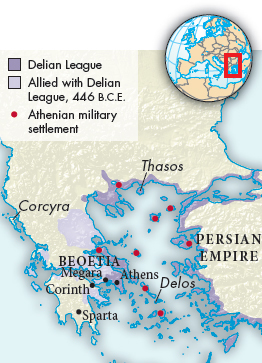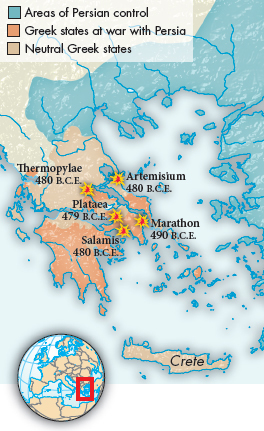The Deadly Conflicts, 499–404 B.C.E.
In 499 B.C.E. the Greeks who lived in Ionia unsuccessfully rebelled against the Persian Empire, which had ruled the area for fifty years (see Chapter 2). The Athenians provided halfhearted help to the Ionians, and in retaliation the Persians struck at Athens, only to be surprisingly defeated by the Athenian hoplites at the Battle of Marathon. In 480 B.C.E. the Persian king Xerxes (ZUHRK-
The victorious Athenians and their allies then formed the Delian League, a military alliance intended to liberate Ionia from Persian rule and keep the Persians out of Greece. The Athenians, however, turned the league into an Athenian empire. They reduced their allies to the status of subjects. Athenian ideas of freedom and democracy did not extend to the citizens of other cities, and cities that objected to or revolted over Athenian actions were put down.
Under their great leader Pericles (PEHR-

